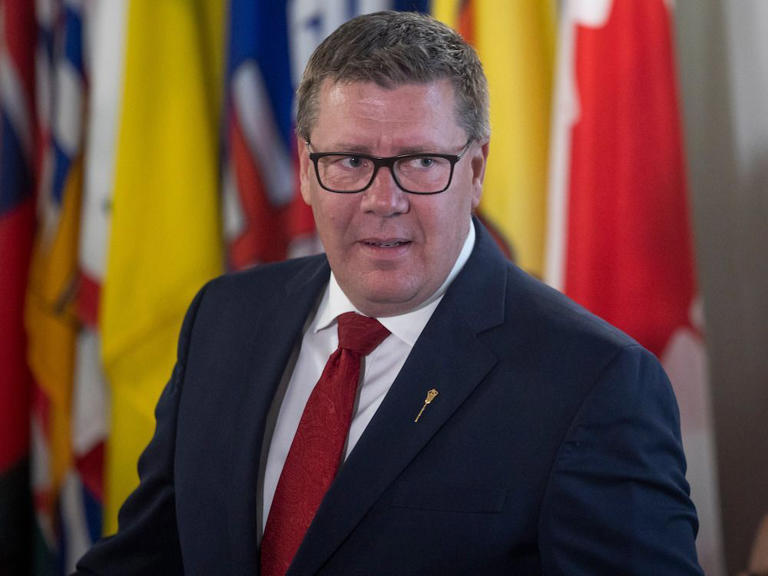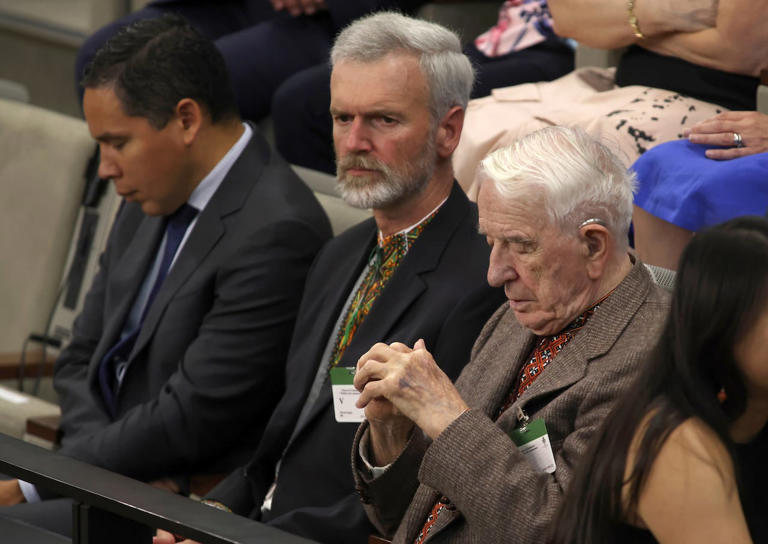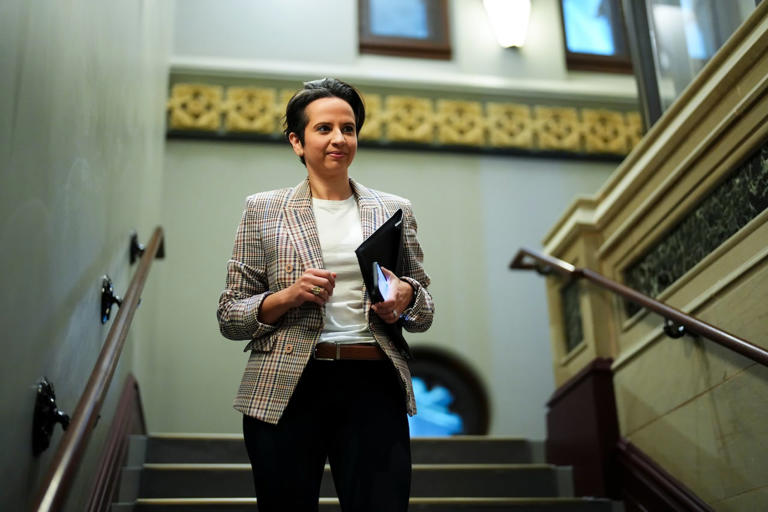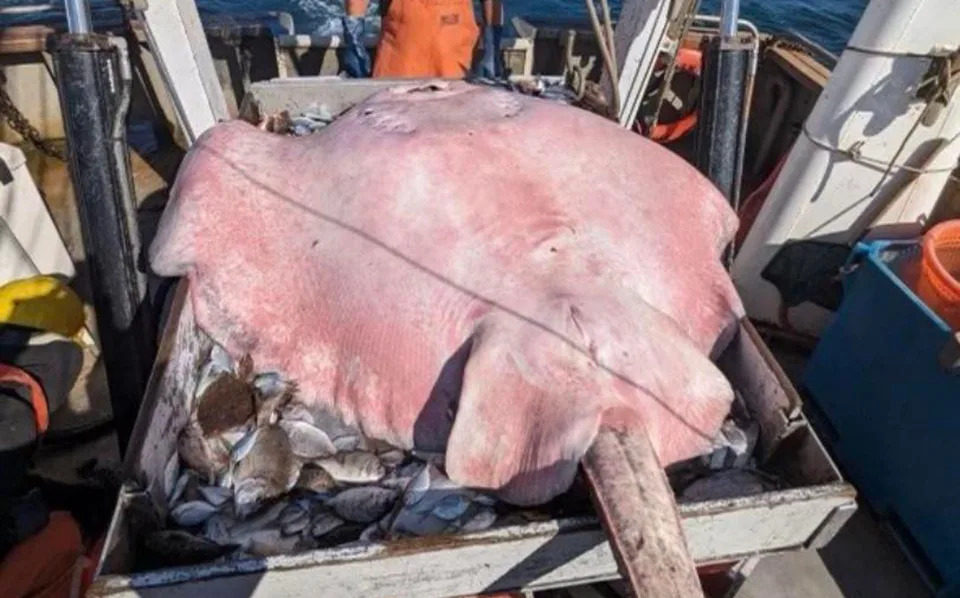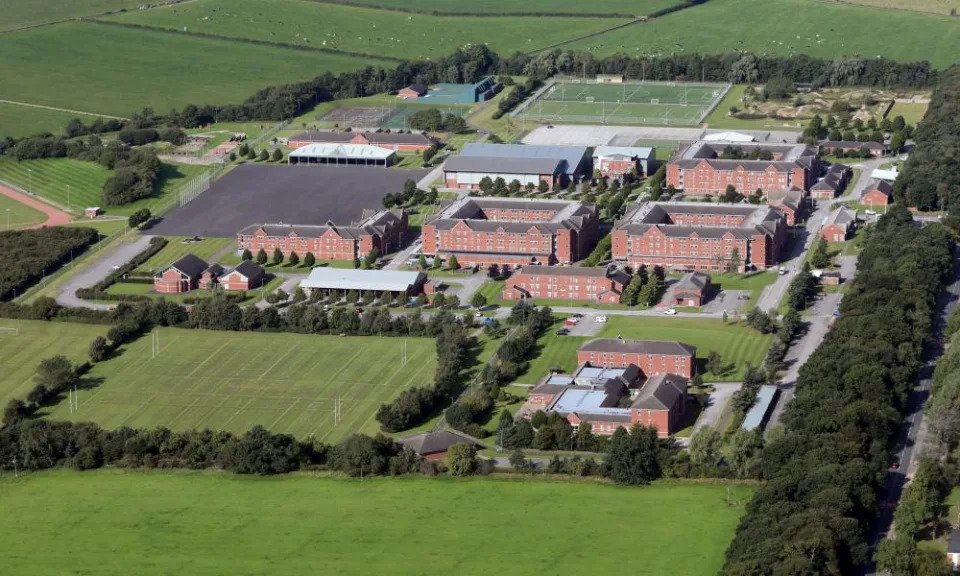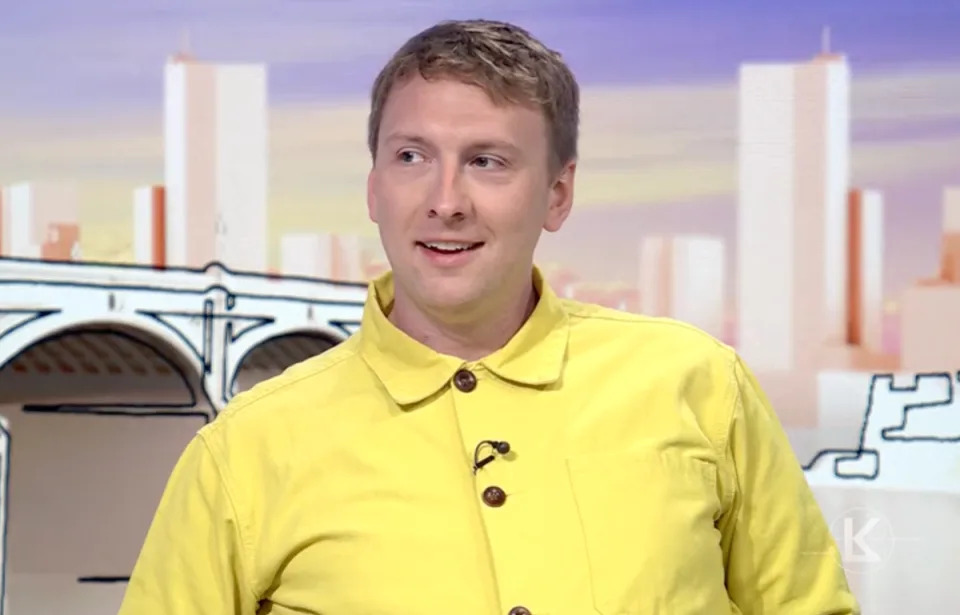Story by Catherine Lévesque •
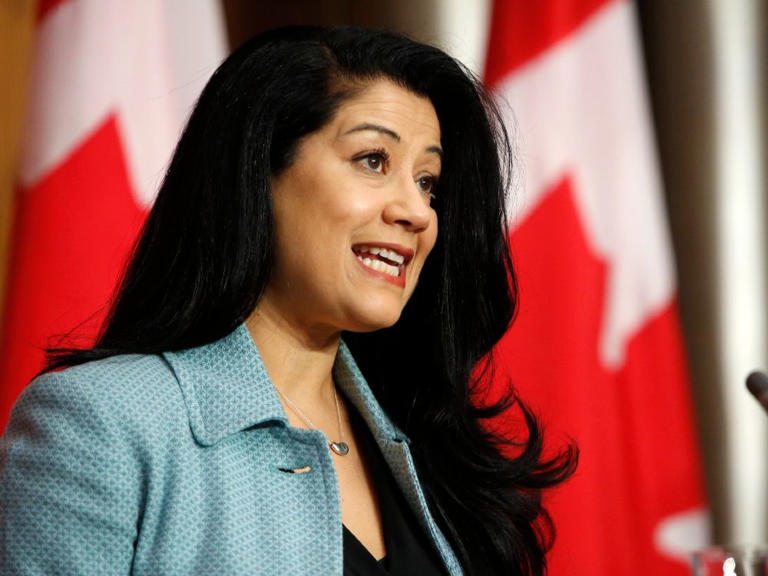
Health Canada Chief Medical Adviser Dr. Supriya Sharma:© Provided by National PostOTTAWA — MPs have been “inundated” with thousands of emails and postcards from constituents in an organized campaign pushing the government to reconsider Health Canada’s move to better regulate natural health products.
The Canadian Health Food Association (CHFA), Canada’s largest trade association dedicated to natural, organic and wellness products, estimates that 75,000 letters and 300,000 postcards have been sent by constituents to their federal elected officials via its advocacy campaign website “Save Our Supplements” to protest against those changes.
“I don’t know about the rest of the MPs, but certainly my email box was inundated with complaints,” Liberal MP Marcus Powlowski told the parliamentary health committee last week. “I received all kinds of postcards and I have to say I’m a little perplexed as to why.”
Conservative MP Todd Doherty told that same committee that in his eight years as MP, “this is probably the topic that I’ve received the most mail and the most feedback from my constituents about,” while Conservative deputy leader Tim Uppal said on X, formerly Twitter, that he had heard from “hundreds’ of constituents who are upset with the Liberals’ new regulations.
Conservatives have been campaigning against Health Canada’s reforms regarding natural health products, arguing the changes will increase red tape and costs for consumers. Just last week, three of their MPs tabled similar petitions in the House of Commons from their constituents calling on Health Minister Mark Holland to work with the industry on the issue
In an interview, CHFA president and CEO Aaron Skelton said he has heard from a number of MPs that this might be the “largest grassroots political campaign that they’ve seen in over a decade.” He hopes that this will put pressure on the government to change course.
“So this is obviously meaningful to Canadians and I think it’s important to step out of the Ottawa bubble sometimes and realize what actually matters to Canadians,” he said.
Natural health products are a $5.5 billion industry in Canada. It includes products such as vitamins, supplements, minerals, probiotics, herbal remedies, homeopathic products and traditional medicines, but also frequently used products like toothpaste and sunscreen.
“Overall, the products are lower risk than some of the other health products that we regulate. But lower risk doesn’t mean no risk,” said Dr. Supriya Sharma, Health Canada’s chief medical adviser in a recent interview.
Last year, the federal government introduced changes to current regulations to improve labelling requirements for natural health products in order to make them more consistent and standardized so that all allergens, for instance, would be indicated in the same way.
The industry has a phase-in period of six years for products already on the market to conform to these new requirements — which is compatible with the natural cycle through which companies update their labels and allows for products on the shelves to be sold, said Sharma. In the case of a new product, the requirement for new labels will come into force in the summer of 2025.
And in this year’s omnibus budget bill , the government introduced more changes to incorporate natural health products into Vanessa’s Law, which requires hospitals to report adverse reactions associated with the products, but also give more powers to Health Canada to request additional information from manufacturers or stop the sale of certain products deemed to be health risks.
“I think people will be surprised to know that until June 2023, Health Canada didn’t have the authority to compel or to force a recall of a product. So we could recall a head of lettuce, we could recall a tube of lipstick, but we couldn’t recall a natural health product,” Sharma said.
But Health Canada is not quite done, since it also intends to go ahead with “cost recovery” fees starting in 2025 , which would make the industry pay for regulatory activities such as the inspections of a facility or the monitoring of products once they are on the market.
According to the proposal, those fees will start at $1,124, but could ultimately cost tens of thousands of dollars, depending on the size of the company. Small businesses can qualify for a 50 per cent fee reduction, while fees can be completely waived if a natural health product company is introducing its first product in the Canadian market.
Sharma said those regulation costs are currently covered by taxpayer dollars, and it is “only fair” that companies bear a portion of the responsibility for ensuring there is appropriate oversight.
Consultation on those cost recovery fees took place this summer, and Health Canada said it is reviewing thousands of submissions from concerned parties before responding.
The industry is opposed to Health Canada’s new labelling requirements and cost recovery fees, arguing that a number of companies will either leave the Canadian market or remove products from the shelves to stay profitable, and that, ultimately, it will hurt the Canadian economy.
“We agree that enforcement of regulations is important. But what’s being proposed will only increase the regulatory burden on compliant Canadian businesses,” said Skelton.
Furthermore, he said, those changes will only drive Canadians to purchase their natural health products online from international markets that are unregulated and unmonitored by Health Canada — something the department said it would not interfere with.
This is not the first time the federal government has experienced pushback from the wellness industry for similar changes.
In 2008, the Harper government caused an uproar when it introduced Bill C-51, which essentially would have given Health Canada the ability to issue mandatory recalls and enforce labelling standards for natural health products — much like what the Liberals have put in place.
An article from the BC Medical Journal noted that “the requirement for even a modest measure of truth in advertising appears to have triggered an avalanche of antipathy from proponents of natural health products” and that a simple Google search of the bill “uncovers a boiling cauldron of paranoia, vitriol, and anti-science that makes the X-Files look downright scholarly.”
In the end, C-51 was never adopted. An election was called later that year and Harper’s Conservatives proceeded to never stir up that hornet’s nest again while in government.
In 2014, when they adopted Vanessa’s Law, also known as the Protecting Canadians from Unsafe Drugs Act , the government gave Health Canada those extra powers to order recalls, impose tougher penalties for unsafe drugs and compel companies to revise labels or do further testing on pharmaceutical products — but it completely excluded natural health products.
“The bottom line is that it’s complicated and it takes a lot of effort, time and energy to do this,” said Katherine Fierlbeck, professor and chair of the Department of Political Science at Dalhousie University. “They just dropped natural health products so they could proceed with pharmaceuticals alone, and it took them a lot of time and energy to deal with pharmaceuticals.”
Fierlbeck, whose fields of research include health policy, noted that the natural health product industry in Canada has greatly evolved since the Harper years and there are many more products than just vitamins, minerals and herbal medicines, which are covered by previous regulatory framework from the early 2000s.
“In the interim, we’ve had the rise of Gwyneth Paltrow and Goop and the self-care philosophy,” she said. “People want to take their health into their own hands. So there is real demand for these self-care products.”
“I don’t know why anybody would want to put jade eggs into their vagina … but people do,” referencing one of Paltrow’s more controversial products.
In last week’s health committee, Powlowski, who served as a doctor before entering politics, openly wondered if the need to regulate natural health products is “really that big a problem that we’re getting this political hit because of this.”
He said he spoke to a former medical colleague of his who told him that a number of his patients with cardiovascular issues were not taking their statins — drugs that lower cholesterol — because they were taking natural health products that claimed to do the same.
Fierlbeck said the Liberals inherited a “very permissive” regulatory regime on natural health products, where Health Canada essentially determines if the benefits outweigh the risks.
The Commissioner of the Environment and Sustainable Development criticized the health department’s laissez-faire approach to natural health products in a report released in 2021, saying it fell short of ensuring the products were safe and effective and that the absence of routine inspections did not ensure that good manufacturing practices were followed.
In addition, the Commissioner sampled 75 licensed products for sale on Canadian websites, and found that 88 per cent of them were advertised with “misleading product information,” while 56 per cent were marketed with “misleading label information.”
Skelton pushed back against the conclusions of the report, saying it “didn’t delineate between compliant and non compliant businesses” and that it was not a randomized selection of products.
“One of the big takeaways from that Auditor General Report was Health Canada has the tools they need; they’re just not enforcing those tools. And industry would gladly support Health Canada and education programs on communicating that out to industry,” he said.
Skelton added that the Canadian Health Food Association’s membership and stakeholders are “very supportive” of the outcomes of Health Canada’s current initiatives.
“We just feel the prioritization, the sequencing is not going to achieve that. And, if anything, it’s going to do significant damage to a world-leading sector within Canada,” he said.
Conservatives, and to a lesser extent the NDP, have been asking the federal government to reconsider some of the reforms to ensure they don’t hurt small and medium businesses, or choice for consumers.
Conservative health critic Dr. Stephen Ellis said the Liberal government is “trying to fix something that clearly isn’t broken” and said those “new regulations will only take away freedom of choice and make life even more expensive for Canadians and hard working businesses.”
NDP health critic Don Davies said lots of people have expressed concern about these new regulatory changes and said a pause is needed until “all the issues and concerns are assessed and resolved.”
“The government has to find the right balance between ensuring that products are safe and people are informed about what they’re buying with clear labelling — and regulations that maintain consumer choice, product availability and a thriving NHP industry,” he said.
Minister Holland’s office said Health Canada is “actively reviewing thousands of comments on its fee proposal, including the fee reduction for small businesses, as part of an open and transparent consultation process with Canadians and businesses.”
“Keeping Canadians safe and healthy will always be our government’s top priority,” said Christopher Aoun, Holland’s spokesperson.

